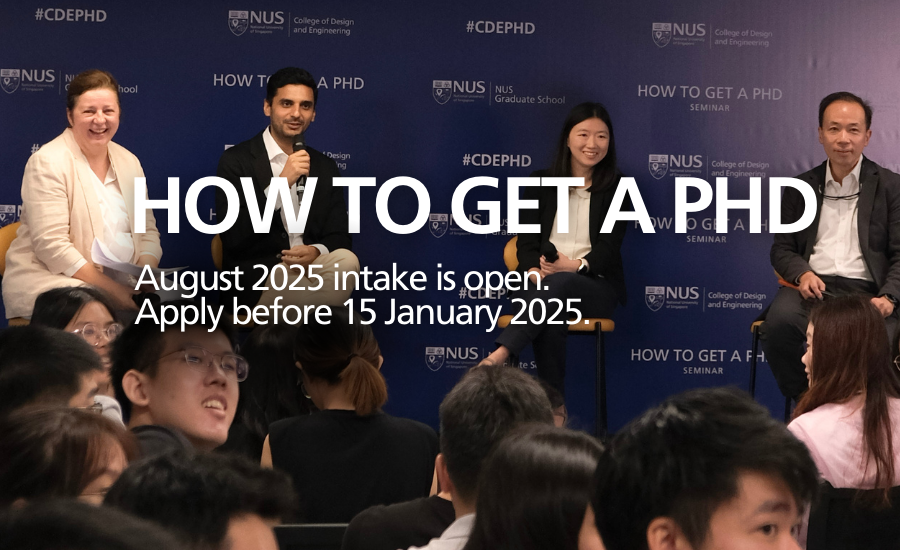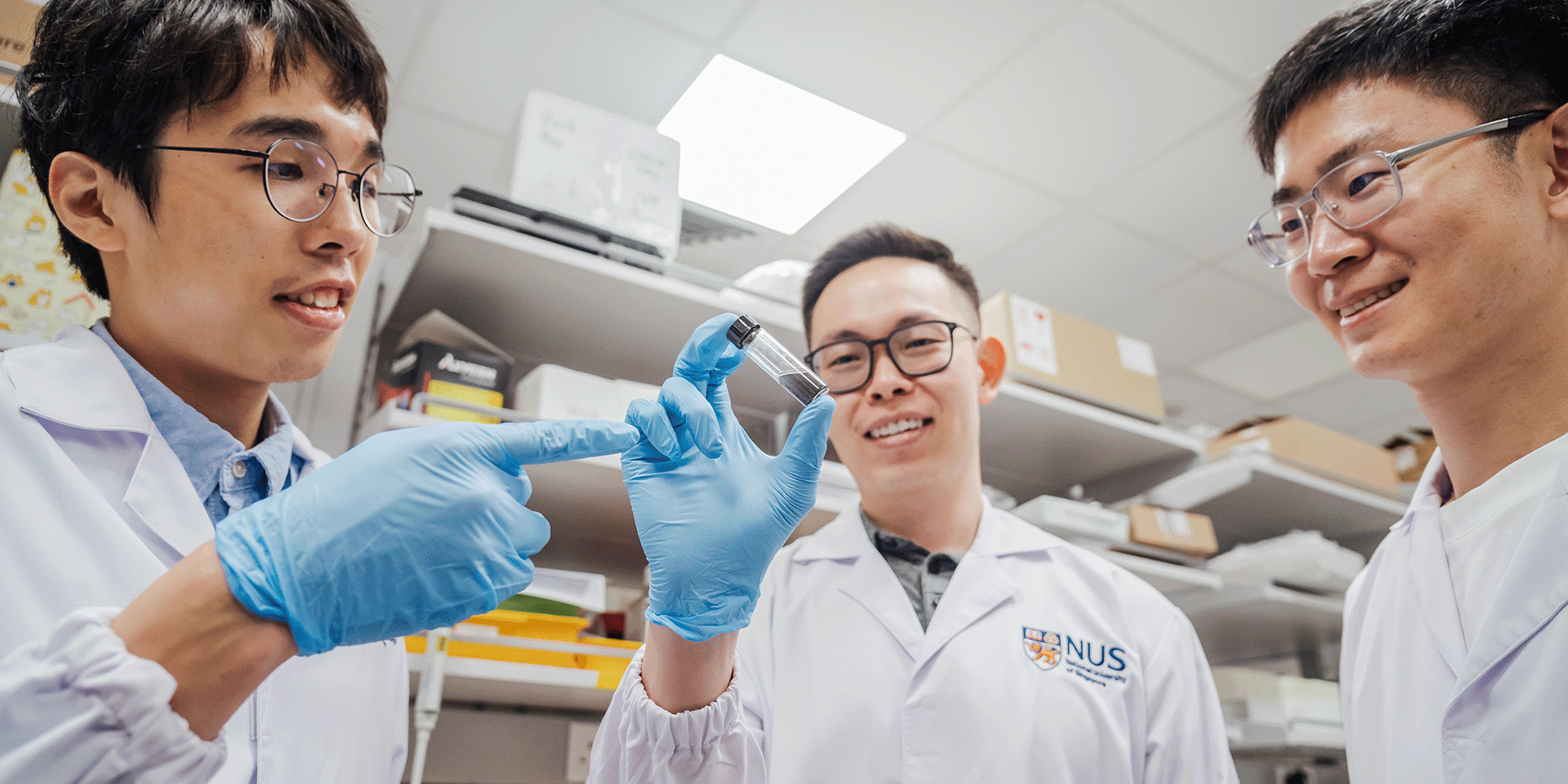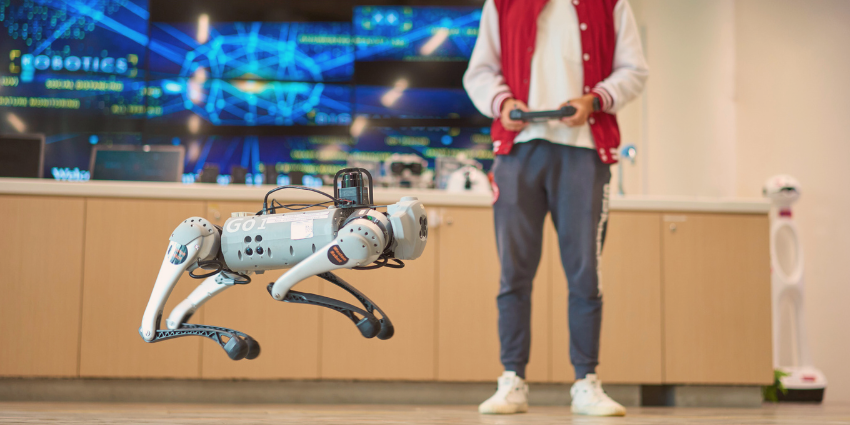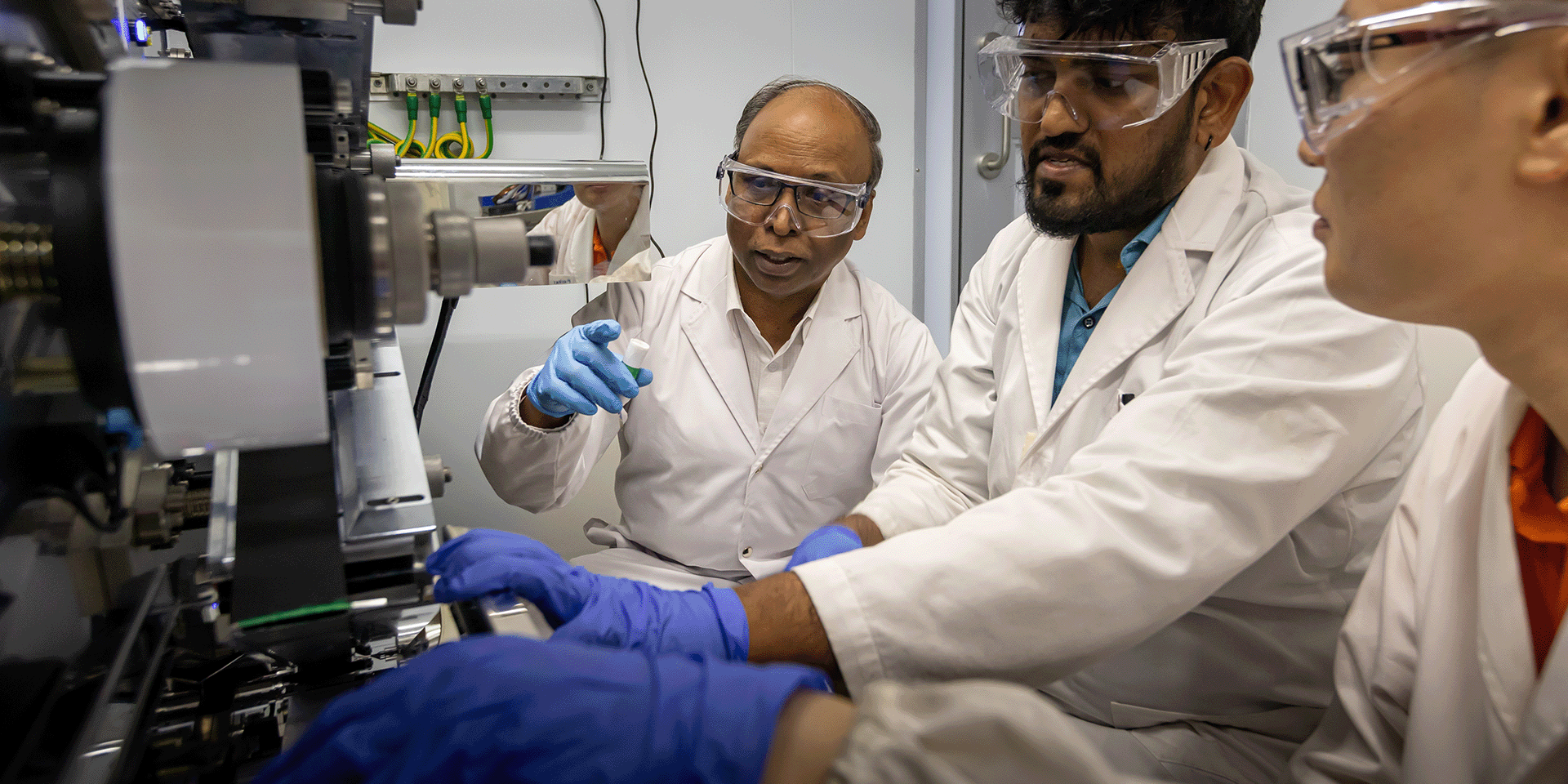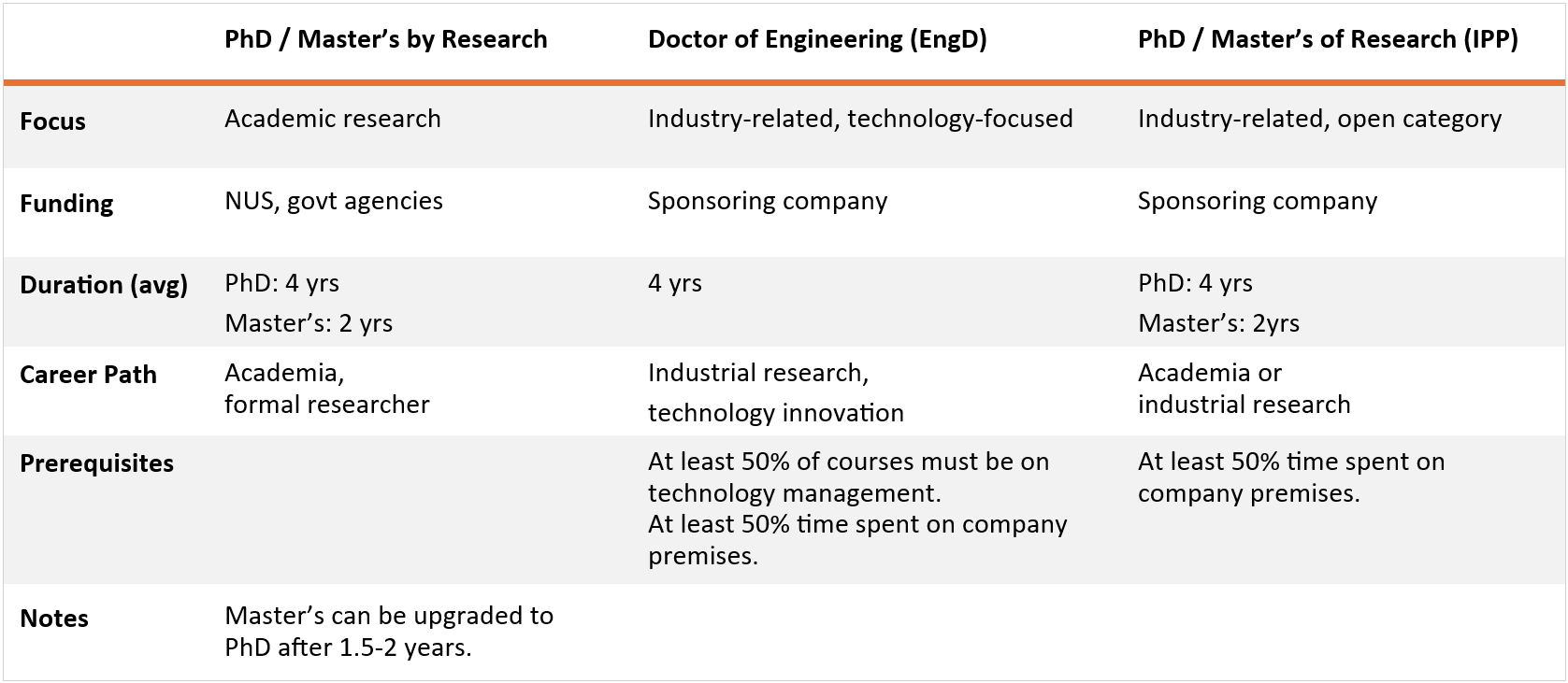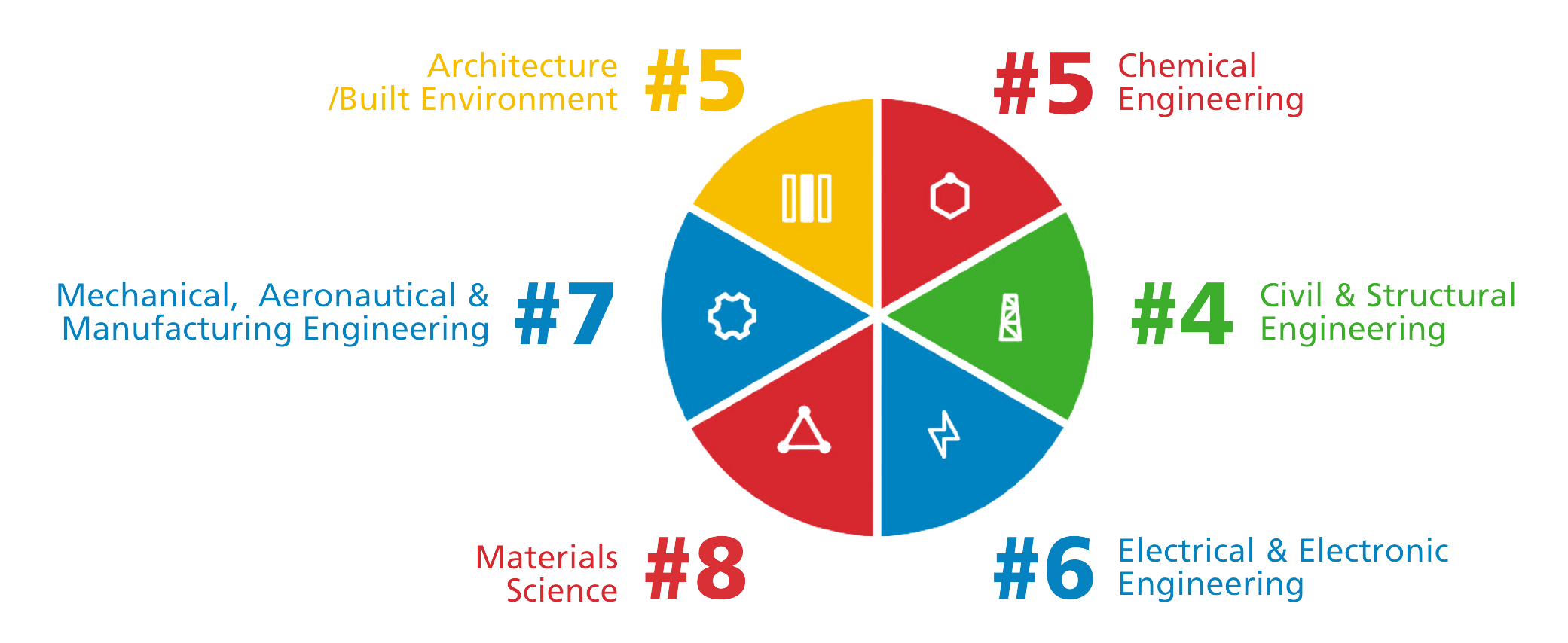HOW TO GET A PHD
Are you considering a PhD but unsure if it's the right path? Wondering how to navigate the application process? Explore these questions and more at our upcoming seminar, How to get a PhD, on 29 August (Thursday). This insightful seminar is co-organised by the National University of Singapore (NUS) College of Design and Engineering (CDE), and the NUS Graduate School (NUSGS).
You'll hear from the Provost of NUS, the Dean of NUSGS, and the Vice Dean of Research and Technology at CDE about our graduate research programmes, learn about cutting-edge research resources available at CDE, gain perspective on the challenges of advanced research, and listen to personal experiences from distinguished alumni.
You'll also learn step-by-step how to prepare a strong PhD application from CDE professors, explore various scholarship opportunities, ask questions, gather information, and picture yourself as part of the NUS research community. Don't miss this chance to shape your PhD journey! Join us to discover how NUS can help you achieve your research aspirations and contribute to groundbreaking innovations in design and engineering!
WATCH THE RECORDING OF THE HOW TO GET A PHD SEMINAR HERE
Speakers
Why Choose NUS for PhD Studies?
Professor Jessica Pan
Vice Provost (Graduate Education), Dean (NUS Graduate School)
Professor Jessica Pan talks about pursuing a PhD at the National University of Singapore. She highlights topics such as the world-class infrastructure at NUS, the variety of available scholarships, the extensive range of research areas, and what the PhD pathway entails for prospective students.
Professor Jessica Pan talks about pursuing a PhD at the National University of Singapore. She highlights topics such as the world-class infrastructure at NUS, the variety of available scholarships, the extensive range of research areas, and what the PhD pathway entails for prospective students.
Pursuing PhD from a research perspective
Professor Silvija Gradecak-Garaj
Vice Dean (Research and Technology), Materials Science and Engineering Department
Professor Silvija Gradecak-Garaj addresses frequently asked questions about pursuing a PhD at the National University of Singapore. Topics covered include: ‘What is a PhD?’, ‘Why pursue a PhD?’, ‘How should I select my research field?’, ‘How should I choose an advisor?’, and ‘What do advisors seek in a PhD student?’.
Professor Silvija Gradecak-Garaj addresses frequently asked questions about pursuing a PhD at the National University of Singapore. Topics covered include: ‘What is a PhD?’, ‘Why pursue a PhD?’, ‘How should I select my research field?’, ‘How should I choose an advisor?’, and ‘What do advisors seek in a PhD student?’.
From Blockchain to a Data Generation Company – My PhD Journey
Dr Uzair Javaid
CEO and Co-Founder, Betterdata AI
Dr Uzair Javaid shares his journey as a PhD student in NUS, and how he became an entrepreneur in the fields of information security and data protection. Discover how he secured a PhD scholarship, ethically hacked 670 user wallets on the Ethereum blockchain, and gained invaluable insights. Watch to learn more about Dr Javaid’s reflections on his regrets, realisations, opportunities, and successes.
Dr Uzair Javaid shares his journey as a PhD student in NUS, and how he became an entrepreneur in the fields of information security and data protection. Discover how he secured a PhD scholarship, ethically hacked 670 user wallets on the Ethereum blockchain, and gained invaluable insights. Watch to learn more about Dr Javaid’s reflections on his regrets, realisations, opportunities, and successes.
Transitioning from PhD to Industry – What PhD Taught Me
Dr Doreen Yong, Chemist
Applied Materials South East Asia
Dr Doreen Yong discusses the challenges and rewards of pursuing a PhD. Gain valuable insights into the skills and mindset necessary to overcome obstacles in both academia and industry. Dr Yong also shares her advice on selecting a thesis supervisor and research interest.
Dr Doreen Yong discusses the challenges and rewards of pursuing a PhD. Gain valuable insights into the skills and mindset necessary to overcome obstacles in both academia and industry. Dr Yong also shares her advice on selecting a thesis supervisor and research interest.
Embarking on a PhD: The Thrills and Challenges of Advanced Research
Professor Aaron Thean
Deputy President (Academic Affairs) and Provost, Director (SHINE), Electrical and Computer Engineering Department
Professor Aaron Thean shares how his PhD shaped his career and opened doors to numerous opportunities. From leveraging cutting-edge technology to witnessing his research applied to popular smartphones, Prof Thean offers an insider’s perspective on the demanding yet fulfilling journey of a PhD student and graduate.
Professor Aaron Thean shares how his PhD shaped his career and opened doors to numerous opportunities. From leveraging cutting-edge technology to witnessing his research applied to popular smartphones, Prof Thean offers an insider’s perspective on the demanding yet fulfilling journey of a PhD student and graduate.
Panel Discussion: ‘How to Get a PhD’ at NUS
Professor Aaron Thean, Professor Silvija Gradecak-Garaj, Dr Uzair Javaid, Dr Doreen Yong
NUS Professors and alumni answer the audience’s questions about getting a PhD and how to maximise their chances of a successful application. Questions range from ‘What to expect during interviews?’, ‘Can someone without research experience apply for a PhD?’, ‘What are the common pitfalls to look out for?’, and ‘How can I increase my chances for success in the industry world after obtaining my PhD’.
NUS Professors and alumni answer the audience’s questions about getting a PhD and how to maximise their chances of a successful application. Questions range from ‘What to expect during interviews?’, ‘Can someone without research experience apply for a PhD?’, ‘What are the common pitfalls to look out for?’, and ‘How can I increase my chances for success in the industry world after obtaining my PhD’.
WHY PURSUE A PHD WITH NUS CDE?
It's a fair question. We believe there are numerous great reasons to pursue your PhD with us, but let's highlight three key points (although we have lots more!)
The research-based programmes of NUS CDE provide training in a particular subject area through independent investigation, study and experimental work, culminating in the submission of a thesis on the research undertaken. Excellent opportunities are available for students to be immersed in a vibrant research-intensive environment in any of our departments in the pursuit of a research degree.
Doctor of Philosophy (PhD) /
Master's by Research
The PhD programme provides rigorous training in various subject areas through independent investigation, study, and experimental work. Under the supervision of world-class research thesis advisors, students develop novel solutions to global challenges. Ideal for future academics.
Doctor of
Engineering
The EngD programme offers a unique opportunity for students to delve into deeply technical industrial research, equipping them with the expertise to drive innovation and create impactful products and services. Ideal for industry researchers.
Doctor of Philosophy / Master of Engineering – Industrial Postgraduate Programme
The IPP is a full-time programme leading to a thesis based on research in partnership with companies. It is ideal for future academics and/or industry researchers.
Comprehensive scholarships available to outstanding applicants of all nationalities
President’s Graduate Fellowship
- Up to S$4,500 monthly
- One-time research allowance
- 4-year tuition fee subsidy, no bond
NUS Research Scholarship
- Up to S$3,500 monthly before PhD Qualifying Examination (PQE)
- With top-up to S$4,000 monthly after passing PQE
- 4-year tuition fee subsidy, no bond
Commonwealth Scholarship
- Up to S$2,700 monthly before PQE
- With top-up to S$3,200 after passing PQE
- 4-year tuition fee subsidy, no bond
Integrative Sciences and Engineering
- Trans-disciplinary PhD research only
- Up to S$4,500 monthly
- One-time research allowance
- 4-year tuition fee subsidy, no bond
NUS-SINGA Scholarship
• Up to S$2,700 monthly before PQE
• With top-up to S$3,200 after passing PQE
• Air travel allowance and settling-in allowance
• 4-year tuition fee subsidy, no bond
NUS-SINGA Scholarship
• Up to S$2,700 monthly before PQE
• With top-up to S$3,200 after passing PQE
• Air travel allowance and settling-in allowance
• 4-year tuition fee subsidy, no bond
A*STAR Graduate Scholarship
- 4-year tuition fee subsidy, no bond
- Other allowances including
- Book allowance
- Computer allowance
- Conference allowance
- Thesis allowance
- Support for up to 12 months of overseas attachment
A*STAR Graduate Scholarship
- 4-year tuition fee subsidy, no bond
- Other allowances including
- Book allowance
- Computer allowance
- Conference allowance
- Thesis allowance
- Support for up to 12 months of overseas attachment
AI Singapore Scholarship
- A competitive stipend of up to S$6,000 monthly, on top of other allowances and full tuition fees, support up to four years of studies at Singapore-based AUs
- 4-year tuition fee subsidy, no bond
AI Singapore Scholarship
- A competitive stipend of up to S$6,000 monthly, on top of other allowances and full tuition fees, support up to four years of studies at Singapore-based AUs
- 4-year tuition fee subsidy, no bond
GUIDE AND TOOLS FOR YOUR PHD APPLICATION
The application for an NUS PhD is an exciting venture.
Start on the right foot with the following checklist and timeline.
Further information and useful links
Office of Graduate Programmes (OGP)
College of Design and Engineering, NUS
Blk EA #06-16
9 Engineering Drive 1
Singapore 117575




